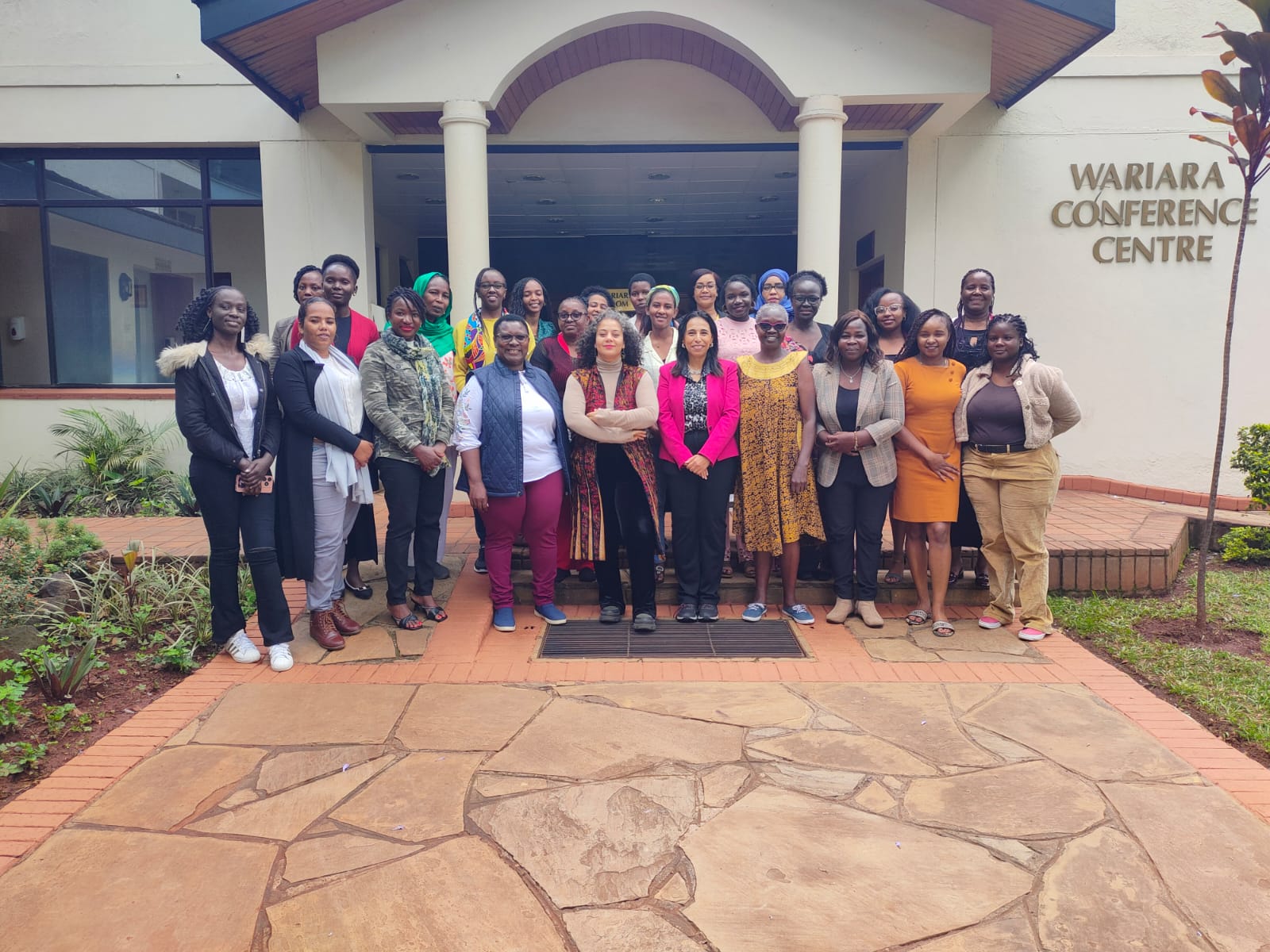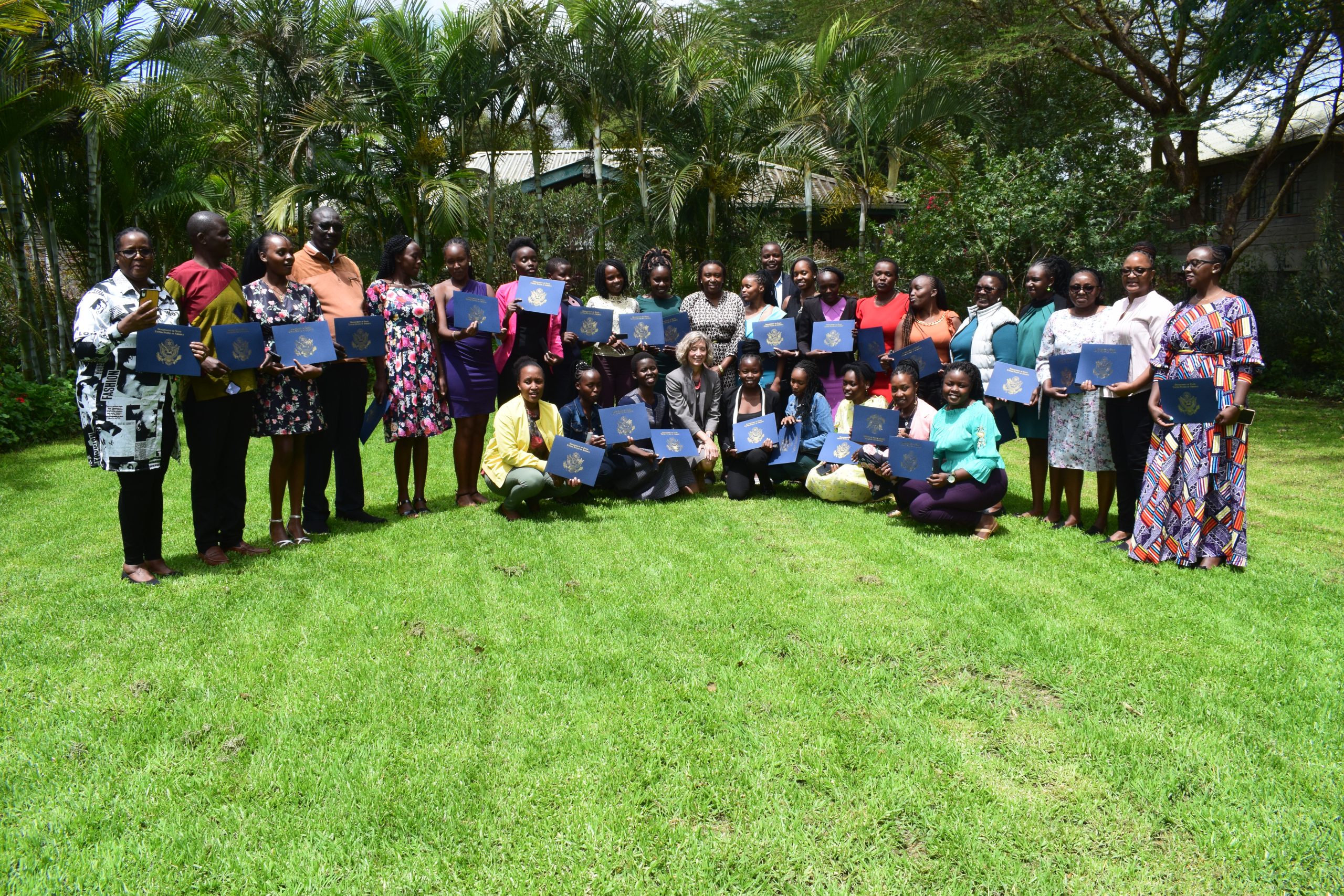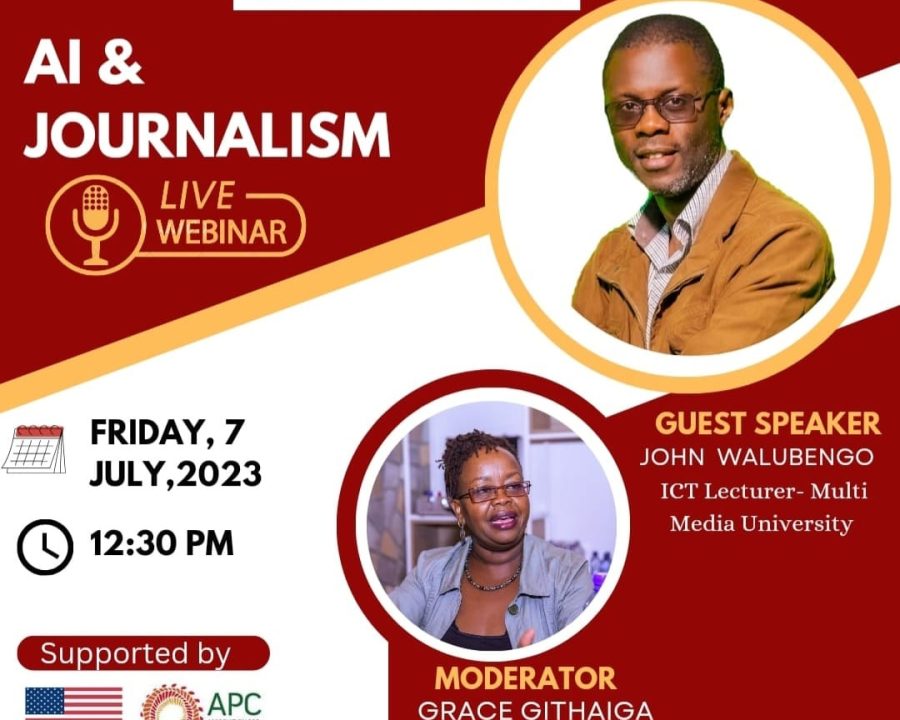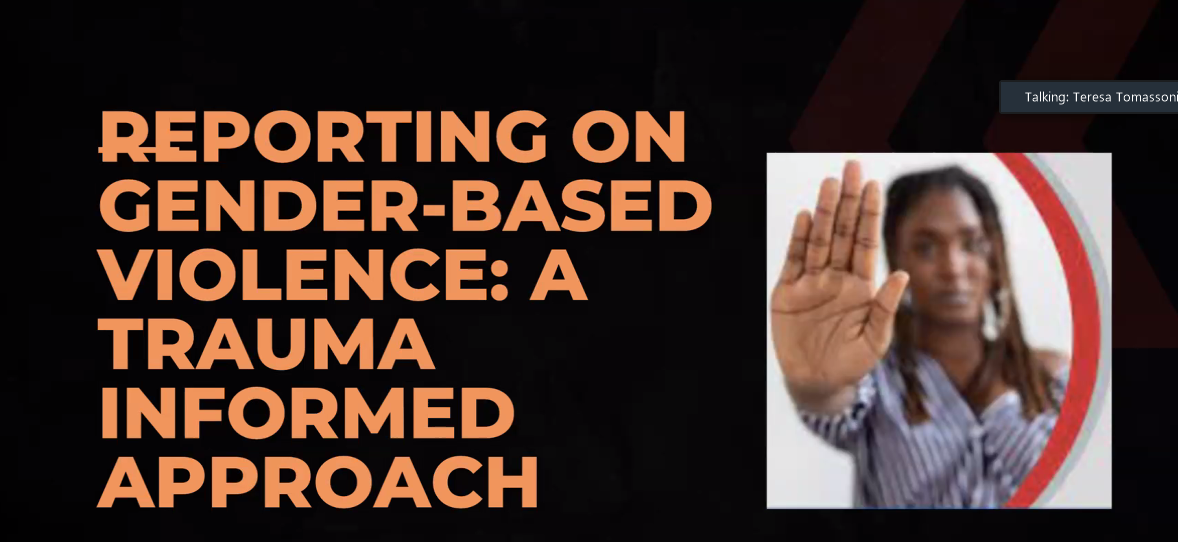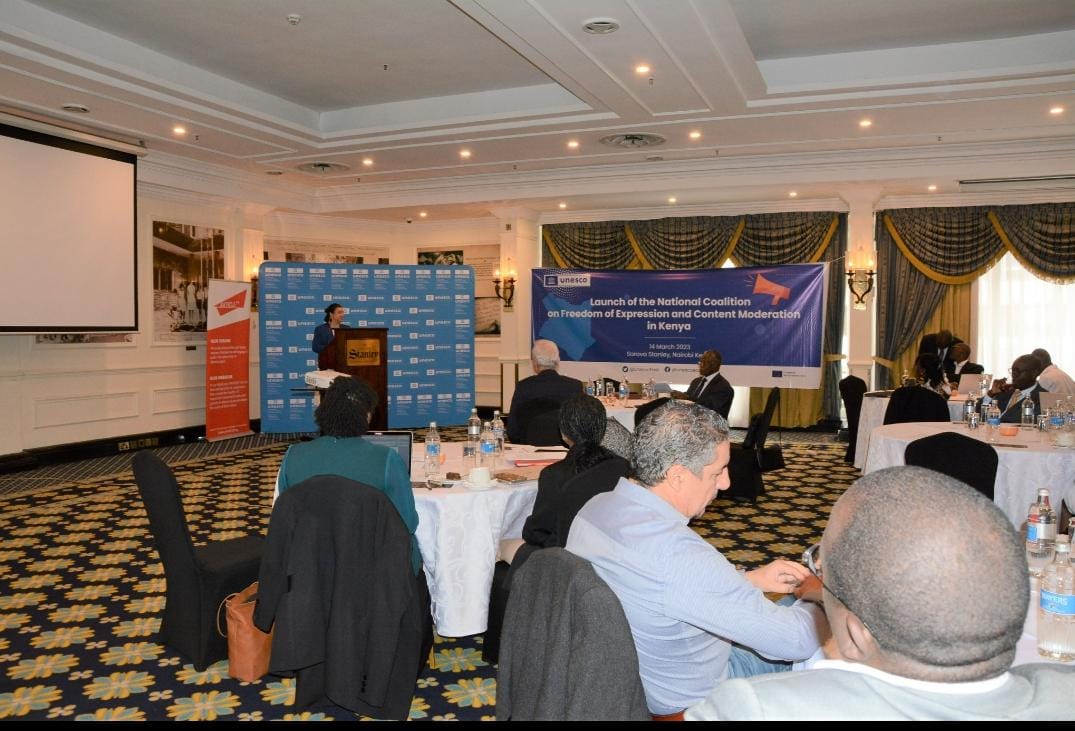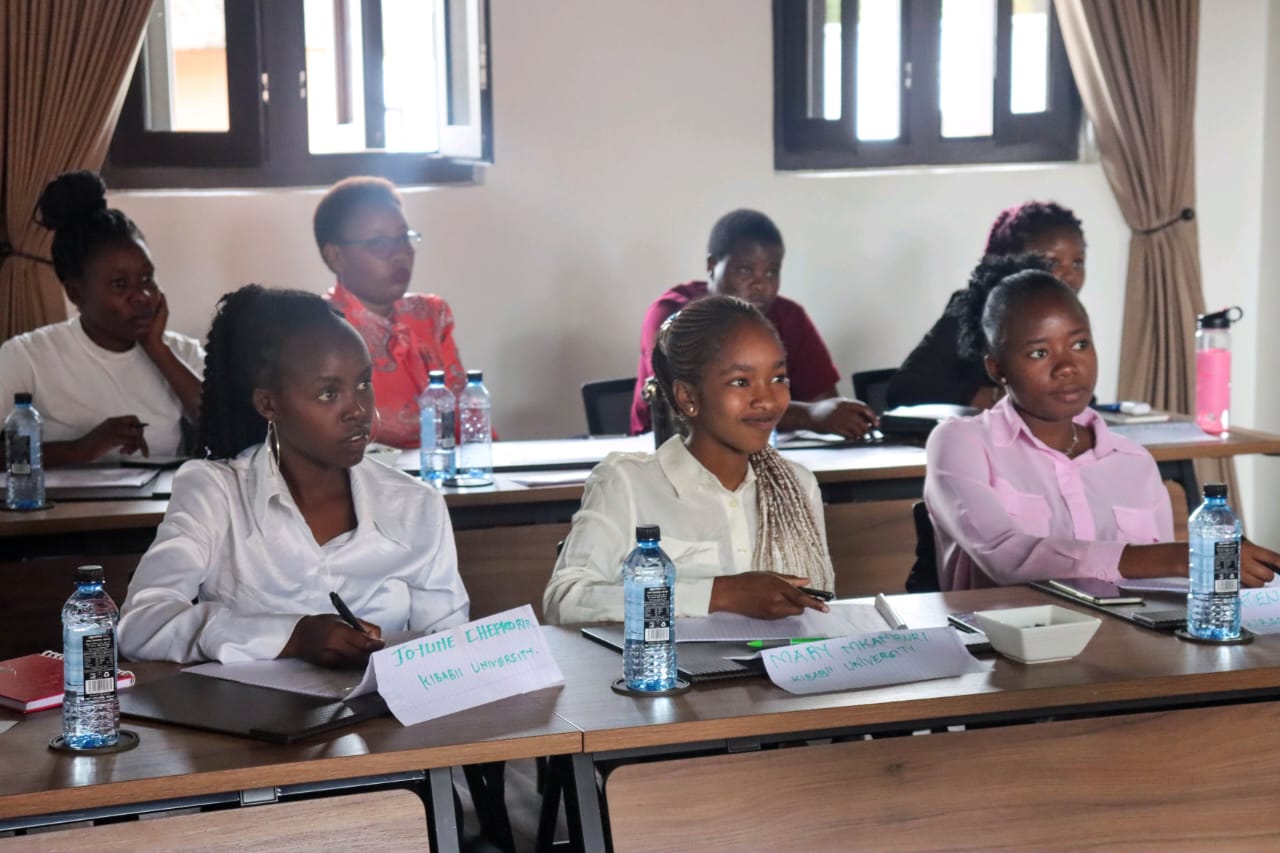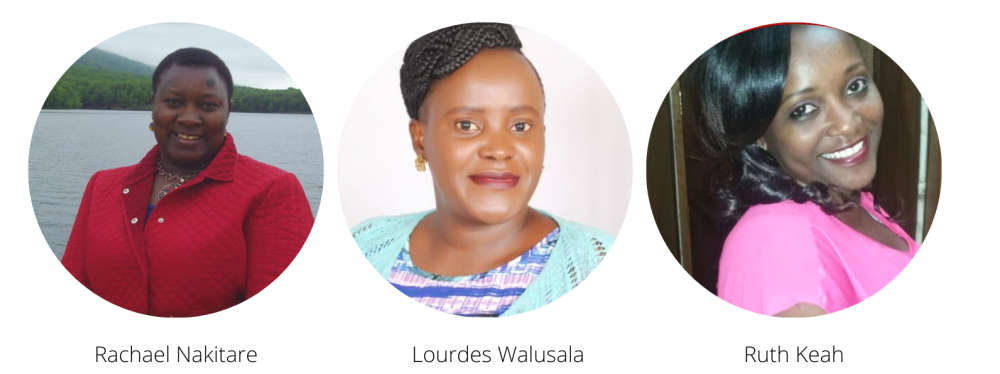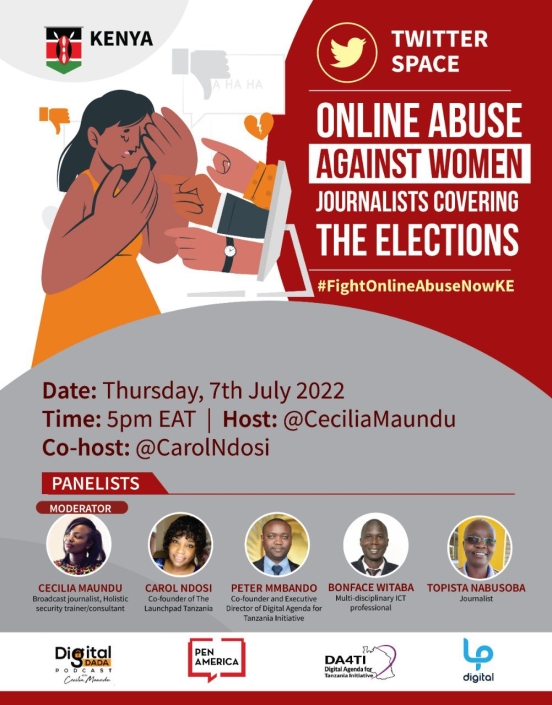In the realm of journalism, unity becomes an empowering force, especially during the #16DaysOfActivism. This annual campaign against gender-based violence demands a collective stance from the journalistic community to shed light on the stories often silenced. Journalists, united in purpose, become a formidable voice, amplifying narratives that drive change and challenge the status quo. As the pen and the camera unite, journalists weave a tapestry of stories that not only raise awareness but also inspire action. This unity transforms information into a powerful tool for advocacy, pushing boundaries and breaking down the walls of silence. By fostering mentorship, IAWRT contributes to the unity within the journalistic realm during campaigns like #16DaysOfActivism. This mentorship becomes a bridge between seasoned journalists and those entering the field, creating a network of support that strengthens the overall impact of journalism in advocating against gender-based violence. The organisation becomes a cornerstone for building solidarity, amplifying voices, and inspiring a new generation of reporters committed to challenging the status quo. By, Neema Mujesia, Digital Media Scientist, Researcher, and Analyst.
Leveraging Female Journalist Mentorship For Professional Development
“Mentorship is the art of unlocking potential by guiding individuals through open doors.” Caroline Ghosn Embracing this philosophy, the International Association of Women in Radio and Television, Kenya chapter, has, for the past six years, championed a transformative platform for female journalists in Kenya. Handpicked from diverse universities nationwide, aspiring female journalists are granted a unique opportunity to undergo a year-long mentorship programme, pairing them with dedicated mentors to sculpt their professional paths. The recent graduation ceremony on November 16th, 2023, marked the culmination of the fifth cohort, evoking emotions of gratitude and evident growth among the mentees. Throughout the year-long program, the mentees actively participated in a spectrum of activities, including tailored training sessions and capacity-building programs, fostering an environment for self-creation guided by the wisdom gleaned from their mentors. At the closing ceremony, Carla Benini, Counsellor of Public Affairs at the US Embassy in Nairobi, underscored the pivotal role of nurturing and empowering young journalists in fortifying democracy. “A strong media equals a strong democracy,” she emphasised. Such mentorship programmes encourage young professionals to fully venture into and commit to their professions and serve as the much-needed connective tissue between the government and the people for journalism professionals. In today’s era of digitalization, Pamella Sittoni, Group Managing Editor at Nation Media Group, emphasized the relevance of journalism studies and its critical role in societal discourse. ‘The media is needed today more than ever to hold power to account and to give voice to the voiceless and as catalysts to positive change,’ she articulated. As guardians of truth and information, the mentees were urged to uphold unwavering professionalism amidst the evolving media landscape. The lifetime award-winning mentor sensitised all to uphold their values of hard work, integrity, respect, and honesty in their professions. This programme, generously supported by the US Embassy in Nairobi, stands as a pivotal catalyst for transformation among female journalists. Faculty members from participating institutions attest to the programme’s tangible impact, acknowledging the remarkable strides made by mentored students across various spheres in the media industry. Rachael Nakitare, the programme coordinator, encouraged all to embrace mentorship as a lifelong pursuit, urging all mentees to perpetuate this spirit. In conclusion, the International Association of Women in Radio and Television (IAWRT) stands as a beacon of empowerment and mentorship for aspiring women in the media industry. Josephine Karani, the Chairperson of the IAWRT-Kenya chapter, extends hearty congratulations to the fifth cohort from Maseno and Kibabii Universities, urging them to embark on their professional journeys with determination and excellence. As Mercy Njoroge, a dedicated mentor, reflects on the rewarding experience of paying it forward, she emphasizes the significance of sustained mentorship from sponsors and the IAWRT fraternity. This collective effort is vital in nurturing and empowering the next generation of women in media, fostering a legacy of resilience, leadership, and innovation within the industry. By Raylenne Kambua, Digital Media Associate, IAWRT-Kenya
Empowering female journalists to Navigate Digital Spaces Safely
By Cecilia Maundu In today’s digital age, the Internet, including social media, serves as an indispensable tool forjournalists to connect with their peers, engage with the public, conduct research, andexpress their viewpoints. However, it’s essential to acknowledge that the Internet has alsogiven rise to gender-based online violence, which disproportionately affects womenjournalists. A 2020 UN Women report highlighted that women working in the media are at a heightenedrisk of online violence due to their public personas. On this International Day of the Girl, aglobal observance dedicated to recognizing and empowering girls around the world, weexplore the importance of empowering female journalists to navigate digital spaces safely. The Digital Landscape and Its Challenges The digital world has become the primary battleground for journalism. To comprehend theobstacles confronting women in this field, we must consider the following: A survey conducted by the International Center for Journalists, encompassing 714 femalejournalists, revealed that a staggering 73 percent have encountered some form of onlineviolence. Notably, they are four times more likely to experience such attacks compared totheir male counterparts, as indicated by a digital security survey report. These statistics not only underscore the high exposure of women journalists to onlineattacks but also emphasize that the repercussions extend from the digital domain into theirreal lives. This violence affects their sense of security, their ability to work, their overall well-being, their career prospects, and their participation in public discourse—undoubtedly acritical democratic concern. Online violence against women can manifest in various forms, including but not limited tounwanted sexual remarks, doxing, non-consensual sharing of intimate content, threats,cyberstalking, harassment, and the circulation of gender-based discriminatory memes andposts. These challenges can deter female journalists from freely expressing their thoughtsand reporting essential stories. Navigating Online Spaces Safely October is Cyber Security Awareness Month. It is paramount that online safety befemale journalist is emphasised, and it requires a multifaceted approach. Here’s how we canempower female journalists to navigate digital spaces safely: 1. Empowerment Through Digital Rights: Digital rights encompass the right to online privacy, freedom of expression, and access to information. These rights recognize individuals’ entitlement to access, utilize, create, and disseminate digital content, along with the right to access the necessary electronic devices and telecommunication networks.Imparting knowledge about these rights to girls, starting at an early age, is critical for theirsafety and success. 2. Utilizing Online Harassment Reporting Tools: Major platforms such as Twitter, Facebook, and Google provide tools for reporting harassment and abuse. These platforms can empower female journalists to take action against online abusers. 3. Engaging in Digital Security Workshops: Organizations like the Electronic Frontier Foundation (EFF) offer digital security training for journalists. These workshops offer valuable insights into online safety and data protection. Moreover, global organizations like PEN America are actively working to educate and equip those disproportionately impacted by online abuse, including women journalists. Their “Online Harassment Field Manual“provides concrete strategies for self-defense. 4. Fostering a Culture of Open Discourse: Female journalists should actively discuss their experiences and challenges. They can mentor and educate other journalists on how to protect themselves. This dialogue can take place through online communities, virtual meetups, or platforms like the Digital Dada Podcast, a Kenyan podcast dedicated to discussing online violence and digital security. Empowering female journalists to navigate digital spaces safely is a collective responsibility.On this International Day of the Girl, let us underscore the importance of digital rights anddigital safety for women in journalism. By raising awareness, providing resources, andsupporting initiatives by organizations like the Committee to Protect Journalists (CPJ) andthe International Center for Journalists (ICFJ), we can ensure that female journalists not onlythrive in the digital age but also stay shielded from online harassment. Cecilia Maundu is a broadcast journalist & digital security expert
Exploring the Intersection of AI and Journalism
The significance of AI in technology debates cannot be overstated, as its wide-ranging influence extends to the media and various other sectors. Recognizing the disruptive potential of AI, the International Association of Women in Radio and Television (IAWRT) organized a webinar on July 7th, 2023, in collaboration with the Association for Progressive Communications (APC) and the US Embassy. The event featured guest speaker John Walubengo, an IT lecturer at Multi Media University, and was moderated by Grace Githaiga, CEO and Convenor at KICTANet. During the webinar, Walubengo emphasized the importance for journalists to comprehend the essential functions of AI technology in order to effectively leverage its capabilities. Given their pivotal role as intermediaries between the public and societal events, understanding how artificial intelligence works is crucial for journalists to carry out their responsibilities. By embracing AI, journalists can make informed choices and navigate their careers in an increasingly competitive media landscape. One notable development in the media industry is the rise of automated news, also known as algorithmic journalism or robot journalism. This rapidly growing technology employs AI and natural language generation to automatically generate news articles or summaries without human intervention. It has applications in financial reporting, breaking news stories, weather updates, and other areas of coverage. AI harbors both benefits and risks for journalism, as highlighted by Walubengo. On one hand, AI-enabled tools can streamline content creation, distribution, editing, transcription, and data analysis processes, enhancing efficiency, accuracy, and productivity. However, there are risks to consider. If AI systems are trained on biased data or inadequately trained to address such issues, they can perpetuate and amplify existing biases. Ethical concerns arise from the potential misuse of AI-generated content, such as deepfakes, which can deceive audiences. Privacy and transparency also emerge as critical ethical concerns in the media industry when utilizing AI. Grace Githaiga, the webinar moderator and CEO of KICTANet, advised journalists to approach AI with caution while embracing its potential opportunities and benefits. Githaiga emphasized that early adopters must continually learn and adapt as new advancements emerge. By embracing lifelong learning and keeping up with new opportunities, the media can discover innovative ways to leverage AI effectively. Despite the inherent threats and risks, AI’s presence in journalism is inevitable. Media practitioners must embrace AI while remaining mindful of the potential risks and harms it may pose. Striking a balance between leveraging AI’s advantages and managing its associated challenges is essential for harnessing its potential in the media industry. IAWRT plays a significant role in exploring the intersection of AI and journalism. As AI technologies continue to shape the media landscape, IAWRT promotes discussions and initiatives that focus on the ethical and responsible implementation of AI in journalism. By fostering collaboration and knowledge exchange, IAWRT aims to empower women professionals in the field to harness the potential of AI while addressing the challenges and ensuring the preservation of journalistic integrity. By Raylene Kambua Digital Media Associate IAWRT, and Neema Mujesia, Media Science Researcher and Analyst
Reporting on Gender-Based Violence (GBV): A Trauma-Informed Approach (PART 1)
According to the most current UN Women’s Global Database on Violence, Kenya ranks 128 globally and 57 globally for gender inequality. According to statistics on the prevalence of various types of violence against women over the past 12 months, female genital mutilation or cutting occurred 21% more frequently than female genital mutilation or cutting over the past 12 months, at 21%, compared to lifetime rates of 40.7% for physical and/or sexual intimate partner violence.
The National Coalition for Freedom Expression and Content Moderation announced in Kenya.
Social media and other digital platforms have greatly empowered people across the globe to communicate, dispense ideas and information, transform societies, educate themselves, and entertain themselves. This has facilitated the promotion of freedom of expression and easy access to information. On the other hand, these platforms have also been misused as useful tools and incentives used to spread hate speech, propaganda, and disinformation. On Tuesday, March 14, 2022, UNESCO launched the National Coalition on Freedom of Expression and Content Moderation in Kenya, established under UNESCO’s EU-funded pilot project ‘Social Media for Peace’. This national multi-stakeholder coalition will engage stakeholders to develop measures to address harmful online content and help bridge the gap between internet companies, regulators, and civil society organizations. According to the research conducted under this project, social media platforms have provided an avenue for disseminating harmful online content and hate speech. This has consequently led to increased online division, political intolerance, social media toxicity, disinformation, and an array of other negative impacts on society at large. Before the launch of this coalition, research was conducted during the implementation of the ‘Social Media for Peace’ project here in Kenya. The key issues that necessitated the formation of this amalgamation include: An observation that there exist online hate narratives and disinformation that impair democracy, governance, and other human rights Lack of a strong coalition to monitor and respond to online harmful content disseminated Lack of transparency in how companies allocate moderator roles, including the number of moderators in different languages and their trusted partners or sources Gaps in the national legislation to address issues with harmful content disseminated Present during the launch, the Deputy Head of the EU Delegation in Kenya, Katrina Hagemann, alluded to the importance of social media business models to acquire mechanisms that portray respect and value for their users. “In keeping with the UN Guiding Principles on Business and Human Rights (UNGPs), companies have obligations to respect human rights and provide mechanisms for remedying adverse human rights impacts. This implies that social media companies ought to ensure that decisions on content moderation are made with sufficient awareness and understanding of the linguistic, cultural, social, economic, and political dimensions of the relevant local context,” she said. This coalition is expected to develop concrete strategies that will enable the construction and maintenance of new solutions to address social media issues by maximizing the potential of digital technologies for the greater good. Most importantly, this multistakeholder national coalition on freedom of expression and content moderation in Kenya will also help bridge the gap between internet companies, regulators, and civil society organizations. IAWRT Kenya is a global nonprofit professional organization of women working in electronic, technology, and allied media. IAWRT Kenya has over 2,000 members spread across media houses and other like-minded organizations. IAWRT strives to support the professional development of members through the exchange of ideas, experiences, and technical knowledge. It also strives to meet urgent global challenges faced by women in and around the media industry. By Raylene Kambua, Digital Media Associate,IAWRT
Women In Media: Push for positive changes through Activism journalism and advocacy
Can a journalist be an activist and an advocate for a cause without compromising the core editorial values of journalism? This is a question asked by the majority, as journalists are supposed to avoid becoming emotionally and politically involved in issues they are covering because once they do, they are likely to lose their objectivity. Speaking in Bungoma during the Bungoma and Kakamega Counties female journalists training, Kenya ICT Action Network (KICTANet) CEO & Convenor Grace Githaiga said journalists have a platform to speak out the evils in society, and as such, they have a responsibility to condemn social injustices by publishing stories. “It’s high time women in media put issues affecting society in the limelight by being a voice for the voiceless.” They are supposed to push for changes in public policy as well as advocate for those changes. Explains Githaiga. Githaiga, who is also a host and moderator on Take on Tech, a weekly TV talk show at Kenya Broadcasting Corporation (KBC), added that journalists can amplify women’s voices by highlighting their stories, giving them a platform to air their views, engaging them in interviews, and featuring them in documentaries and news. A radio producer at Kenya Broadcasting Corporation (KBC), Toepista Nabusoba, said advocacy journalism should always bring positive change and should adopt a non-objective viewpoint socially and politically. Nabusoba noted that advocacy, unlike propaganda, is fact-based but supports a specific point of view on an issue whose goals are to inform, influence, and involve by setting the agenda, shaping the debate, as well as advancing a policy. Racheal Nakitare, who is a trainer at the International Association of Women in Radio and Television (IAWRT) in Kenya, insisted on the need for female journalists to make follow-ups to their stories, especially those that involve gender-based violence, rape, defilement, sexual harassment, and so on. As a female journalist, you must put yourself in that situation and be empathetic. You should always do follow-ups to the stories you air to see if justice was served,” said Nakitare. By Brenda Imai
IAWRT Kenya members win in Annual Journalism Excellence Awards 2022
Three members from IAWRT Kenya chapter won in the 2022 Annual Journalism Excellence Awards (AJEA), known as one of Kenya’s prestigious journalism awards which was established since 2012 for print, broadcast, and now digital journalism Former IAWRT Chairperson Rachael Nakitare received the Lifetime Achievement Award for her contribution to the media development in Kenya over the years. Rachael has been involved in mega media projects locally and internationally. She was the first Kenyan journalist to interview the former President Obama at the White House. Ruth Keah of Radio Rahma bagged three awards in three categories: ICT and Telecommunication Reporting Radio for “Gharama ya mawasiliano kwa watu wenye changamoto ya matamshi,” Innovation and Business Reporting Radio for “Programu ya ranunu inavyosaidia watu wenye ulemavu kupata ajira” and Sports Reporting Radio for “Mohammed Munga – aaupuza ulemavu na kung’aa kimataifa kwenye mchezo wa soka.” All her stories, produced in the local Swahili language, highlighted the plight as well as achievements of people with disabilities. Senior radio journalist Lourdes Walusala of KBC English Service won in the Innovation and Business Reporting Radio category for “Recovery of women-led smes.” The chief guest at the awards ceremony was Court of Appeal President Daniel Musinga, while Auditor General Nancy Gathungu was the Keynote speaker. MCK CEO Mr. David Omwoyo reiterated the council’s commitment to upholding and ensuring ethical journalism practice. He said, “It is prudent for the media to provide Kenyans and media content consumers with content that is prepared professionally, that promotes, respects and adheres to the fundamental principles and global standards of journalism.” Through the awards, the media has an opportunity to enhance its professional standards of practice and grow in its mandate as an opinion shaper and a platform for discourse. About AJEA Three members of the International Association of Women in Radio and Television (IAWRT)- Kenya chapter scooped top awards during the prestigious Annual Journalism Excellence Awards (AJEA) 2022. This is a signature event of the Media Council of Kenya (MCK) that recognises and celebrates excellence and professionalism in the media industry in Kenya. The awards are usually the peak of celebrations to commemorate the World Press Freedom Day marked globally on 3rd May. This year’s event was particularly significant, marking ten years since the inception of AJEA in 2012. Winners of these awards submit their stories on broadcast, print and digital platforms after which a panel of judges who then determine the winning stories. The stories must have been published or broadcast over the last one calendar year. Judges often look for innovative stories and investigative journalism that goes beyond the obvious, the ordinary, the expected, and the regular. They look for journalism that puts issues in context and in perspective, thereby making sense of issues of public interest.. The stories cut across radio, television, print and digital platforms . The MCK also presents the Life Time Achievement Award to persons who have shown significant contribution to the media industry at large. The Council has held AJEA since 2012, with this year’s event marking ten years of its existence. The awards are a continuous annual recognition and celebration of journalistic excellence and achievement in Kenya. The awards aim to identify, celebrate and maintain excellence in journalism and the media industry in general. It also endeavors to recognise journalists who have demonstrated high standards of reportage and ethics in their work and challenge them to achieve the highest standards of ethics in the profession and practice of journalism. The awards also identify areas of capacity, need for journalists and media practitioners to maintain standards of excellence in the profession. The awards also works to motivate young journalists to seek to excel in their work and grow in the profession and inspire journalists to play their role in upholding democracy, integrity and accountability in society. The Media Council of Kenya is the guardian for the code of ethics and practice of journalism in the country. The Council is also expected to ensure that journalism standards are upheld and gaps identified in the practice of journalism are mitigated through capacity building.
Online VAW Against Women Journalists Covering the Elections in Kenya
Various groups in Kenya talked on Twitter Spaces on July 7, 2022 to discuss the online violence women journalists are going through as they report on elections. Less than a month before the elections, there has been a surge in online violence against female journalists. IAWRT Kenya member Cecilia Maundu served as the host/moderator and Toepista Nabusoba served as one of the panelists. “As journalists, we’re increasingly expected to have an online presence and engage on social media, which puts us at risk of abuse. And now, with Kenya heading toward the elections, odds are high that attacks against journalists—online and off—will escalate. Abusive trolls join forces to send hateful messages, impersonate, hack accounts, and publish sensitive personal information, also known as doxing. Their ultimate goal is to intimidate, discredit, and silence journalists and undermine press freedom,” shared Maundu on the situation that prompted the discussion. She said that despite this, there are concrete steps each of us can take to protect ourselves and fight back. “Journalists need to be provided with resources to help protect their digital identities,” added Maundu. The conversation was held in conjunction with launch of the Pen America Online Harassment Field Manual in Swahili https://onlineharassmentfieldmanual.pen.org/sw/ 7th July was also Kiswahili world day and the organizers found this as the ideal day to launch this website. “As digital security trainers, we have realized that it is important to have more resources in not only English but also in Swahili which is also a national language in Kenya. Not only will it serve the Kenyan community but also countries in the East African region that speak Swahili,” said Maundu.

